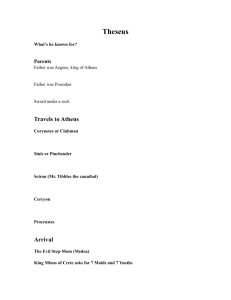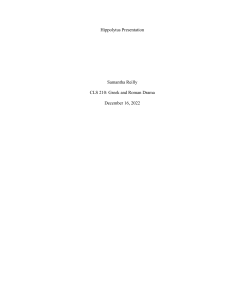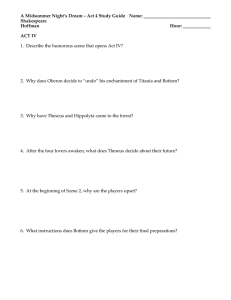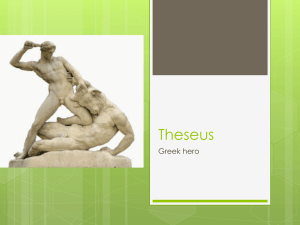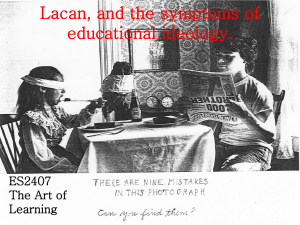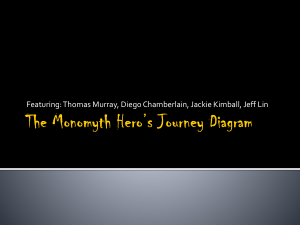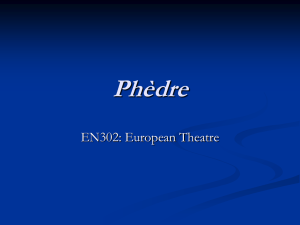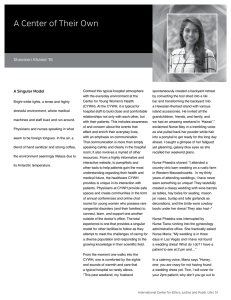Phaedra’s Love Spring One Act Festival The Country Wife By Sarah Kane
advertisement
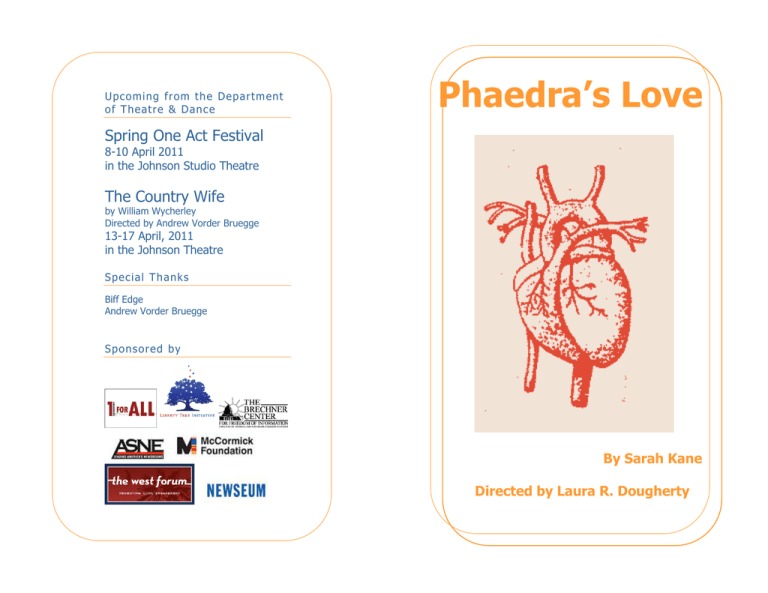
Upcoming from t h e Departm ent of T heat re & Da nc e Phaedra’s Love Spring One Act Festival 8-10 April 2011 in the Johnson Studio Theatre The Country Wife by William Wycherley Directed by Andrew Vorder Bruegge 13-17 April, 2011 in the Johnson Theatre Special T h anks Biff Edge Andrew Vorder Bruegge Sponsored by By Sarah Kane Directed by Laura R. Dougherty Sarah Ka ne Hippolytus Phaedra Strophe Doctor/Priest/ Theseus Chorus Dennis Dejesus Cecily Bigham Jesse Powers Sean Rodriguez Amber Westbrook The Public Philip Calabro, Sydney Moore, Norman Burt, Courtney Williams, Hannah Marie Kistler, Sommer Austin Stage Managers Director Jocelin Lehner & Erin Bailie Laura R. Dougherty A British playwright who, despite her brief life (1971-1999), produced provocative plays which churn with intensity, pain, violence, sex, and anguish. The dialogue she wrote is clipped in its rhythm, though deeply steeped in traditions of poetry. Her plays: Blasted, Cleansed, Phaedra’s Love, Crave and 4.48 Psychosis. Phaedra’s Love is loosely based on Roman scholar and playwright Seneca’s version of Phaedra, which was based on the ancient Greek play Hippolytus. Sene ca ’s Phaedr a Written around 50 CE, Phaedra centers on a queen, who at her nurse’s behest, attempts to seduce her chaste and beautiful step-son, Hippolytus, while his father, Theseus, is away. After Hippolytus rejects Phaedra and Theseus returns, Phaedra tells Theseus that Hippolytus tried to rape her. Theseus calls on Neptune to kill Hippolytus. Phaedra, destroyed by grief and guilt, confesses to Theseus and hangs herself. Theseus is left with a dismembered son and a hanged wife. Cast Dire ctor’s Not e Scene: A royal palace Time: Present day I am drawn to those plays which give us, as audience, no choice but to see, to engage with the complex and multivalent work before us. Phaedra’s Love exposes the entrails of human brutality and hyperbolic desire, laced together with hints of dark humor. Kane has given us the great gift of a challenge. Stripping sentimentality from sex, and passion from violence she exposes how we give in to desire, and with what relish—a question we are left with is: to what end? “If there could have been more moments like this.”
